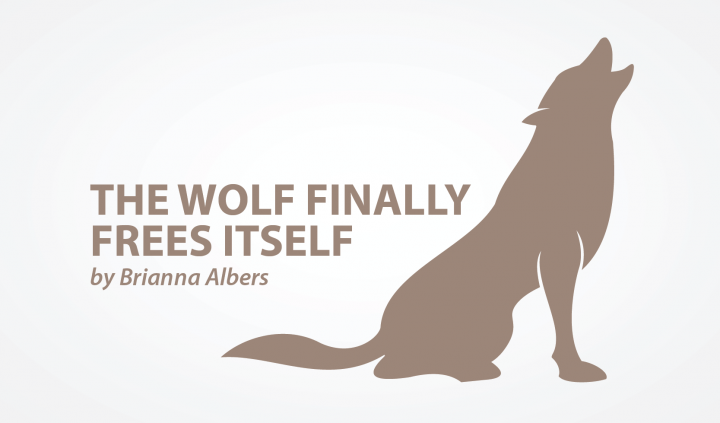We Can Make Something Good of This Pandemic
Written by |

I cried, really cried, for the first time last week.
My mom is working from home (WFH) and has transformed our basement into a makeshift office. My dad has become my full-time caregiver. Our cat, Josie, has been forced into quarantine with us — she loves prowling the neighborhood, but no one’s sure if animals transmit COVID-19, so we’re playing it safe. I listen to the same 52 songs on repeat and do classwork like the dutiful student I am.
We are safe in our sustainable bubble of love. So it’s easy to forget how much things have changed. But sometimes it hits me, like it did last week. My dad sneezed a couple of times, and I immediately jumped to thinking about the inevitability of his death. He sequestered himself on the opposite end of the house, and I cried. The stress of the past few weeks must’ve caught up with me.
He’s fine, of course. He sneezes and coughs on occasion, but he doesn’t have a fever. He feels fine but is wearing gloves and a mask. He’s been isolating as much as I have, so the chances of him picking it up are pretty minimal. But it still hit me hard.
I’m not in denial. It’s just that some days, I’m fine. Some days, it’s like nothing has changed. But other days, I can barely drag myself out of bed. I miss my friends, Sunday afternoons around a rickety table playing Dungeon World with Lego figurines. I miss my caregiver’s eldest daughter. I miss her laugh, the patter of her feet, her chin propped on my knee. I can never predict the state of my mind.
I am, for the most part, lucky. My mom can work from home. My dad can build his online farmers market and take care of me at the same time. My closet is stocked with medical supplies. Meanwhile, marginalized communities are experiencing the economic impact of the coronavirus. My privilege is hard to swallow, especially at a time like this, when the safest, most responsible thing I can do is keep my distance.
But I am also hopeful, and maybe I shouldn’t be. Hope feels like a selfish middle finger to the people who will bear the brunt of this pandemic: Asians across the world who are experiencing racism and discrimination, the elderly and immunocompromised, the poor and the homeless. People are dying. We will experience the aftershocks of this virus for years to come. There are precious few things we as individuals can do right now.
But I’ve been thinking a lot about the future. And not just because I am weeks — weeks! — away from graduating with my master’s degree. People are dying, and we have a responsibility to do what we can to flatten the curve. But we also have a responsibility to seriously consider how to move forward.
There is nothing good about this pandemic, but we can assess our future as a society and make the best of the changes to come. To stimulate the conversation, here are some things I’ve been thinking about:
- Impact of social distancing on the environment: Humans are social creatures. I would never advocate for unnecessary isolation, but the effect of China’s quarantine on its pollution does make you think.
- Societal migration to WFH: People with disabilities have been championing remote jobs for years. Obviously, some jobs aren’t cut out for WFH. But can we capitalize on this substantial shift in mindset to increase workplace accessibility? As product manager Andrew Stromme wrote in his newsletter, the WFH revolution is just getting started.
- Economic ripples: How can we support small businesses that might go under as a result of this pandemic? This is an opportunity to evaluate our spending habits and redirect our finances to local, fair trade, organic, and sustainable markets.
- Facilitating connection: Many people are experiencing significant loneliness and disconnection. How do we cultivate a sense of community amid chaos and uncertainty?
- Shift to distance learning: Many educational institutions are scrambling to establish distance learning for their students. My concern is that, once this pandemic has passed, the status quo will once again alienate people who rely on distance learning and WFH accommodations. This shift should have occurred years ago, and it’s unfortunate that a literal pandemic was the stimulus, but we need to maintain the gains we’ve seen over the past few weeks and fight for increased flexibility.
What changes do you want to see as a result of the coronavirus? Let me know in the comments below. I’d love to hear from you!
***
Note: SMA News Today is strictly a news and information website about the disease. It does not provide medical advice, diagnosis, or treatment. This content is not intended to be a substitute for professional medical advice, diagnosis, or treatment. Always seek the advice of your physician or other qualified health provider with any questions you may have regarding a medical condition. Never disregard professional medical advice or delay in seeking it because of something you have read on this website. The opinions expressed in this column are not those of SMA News Today, or its parent company, Bionews Services, and are intended to spark discussion about issues pertaining to spinal muscular atrophy.







Leave a comment
Fill in the required fields to post. Your email address will not be published.